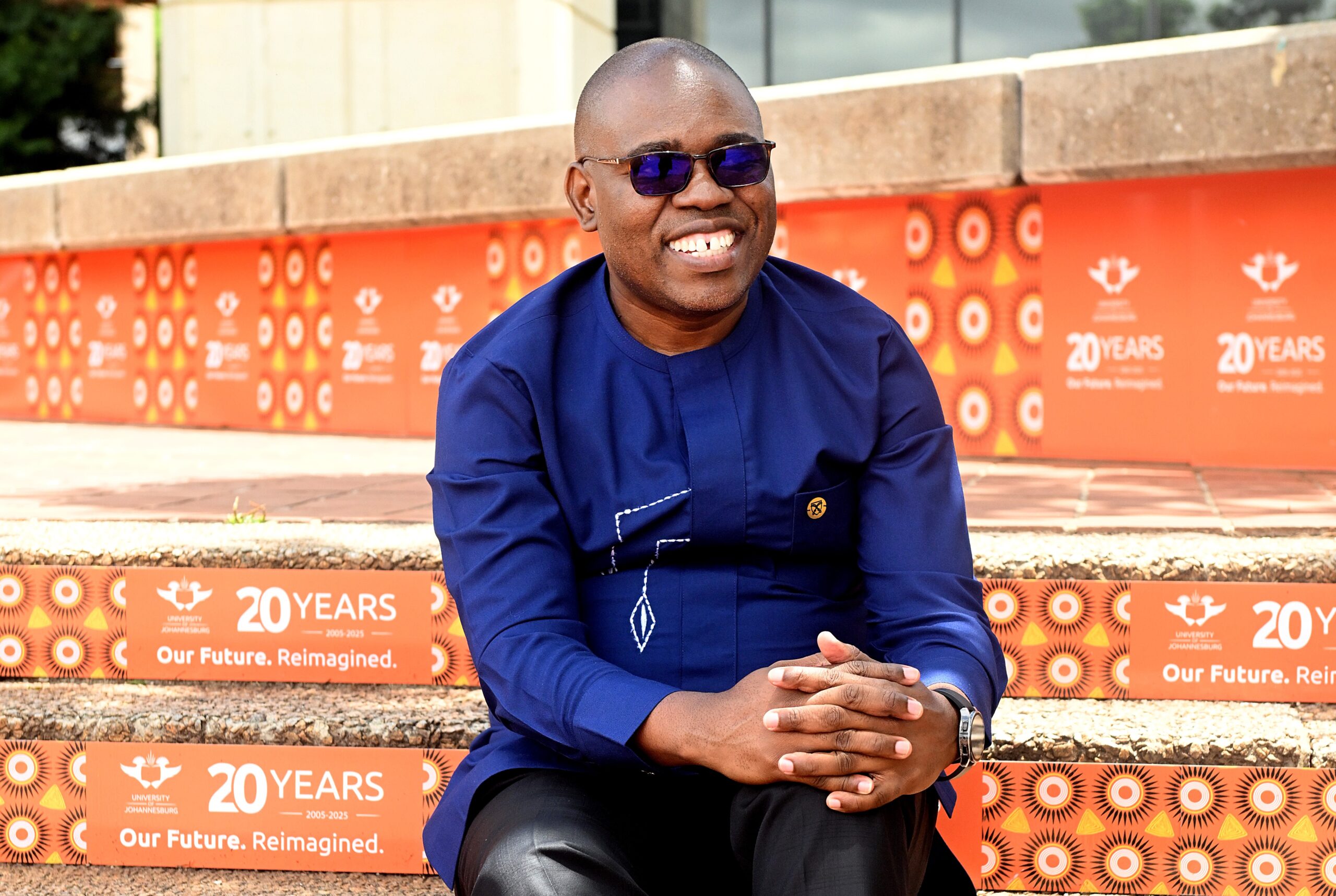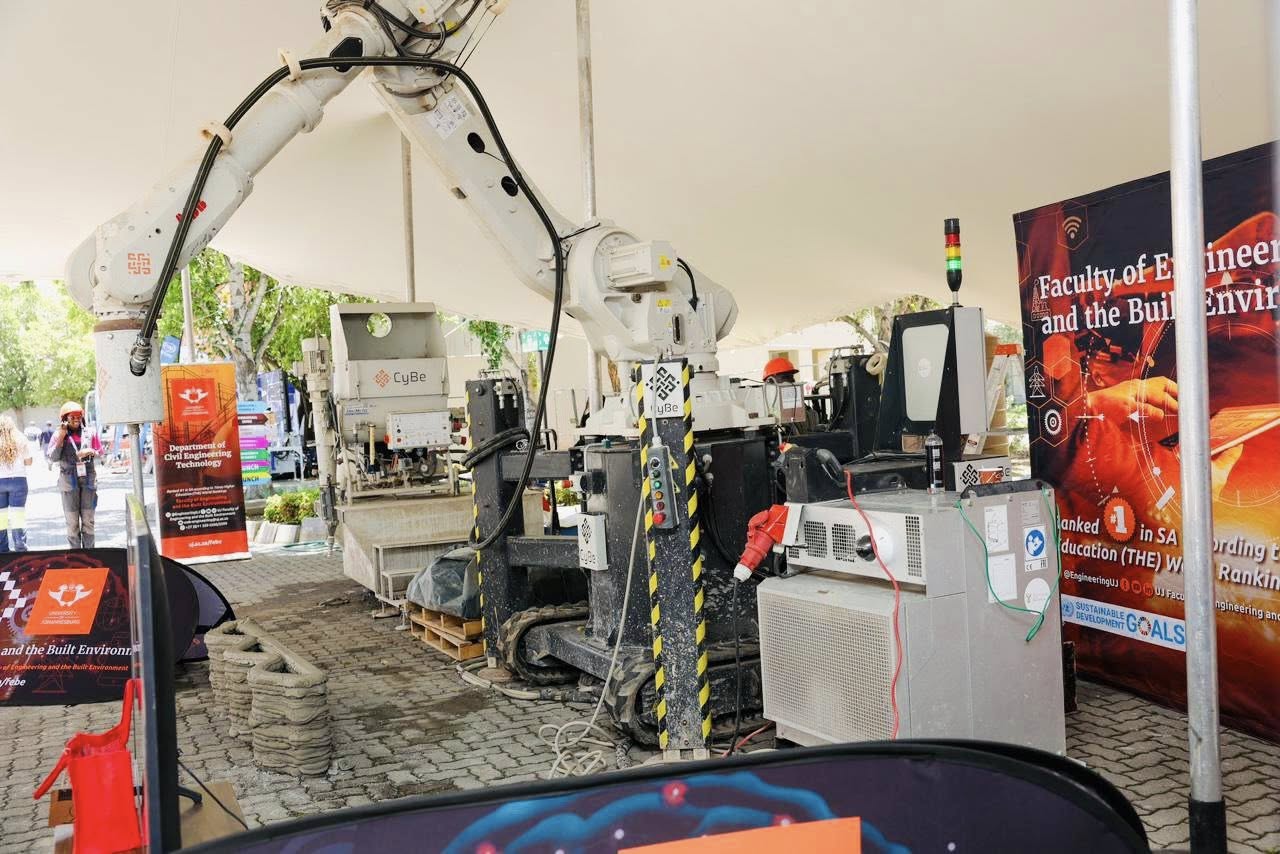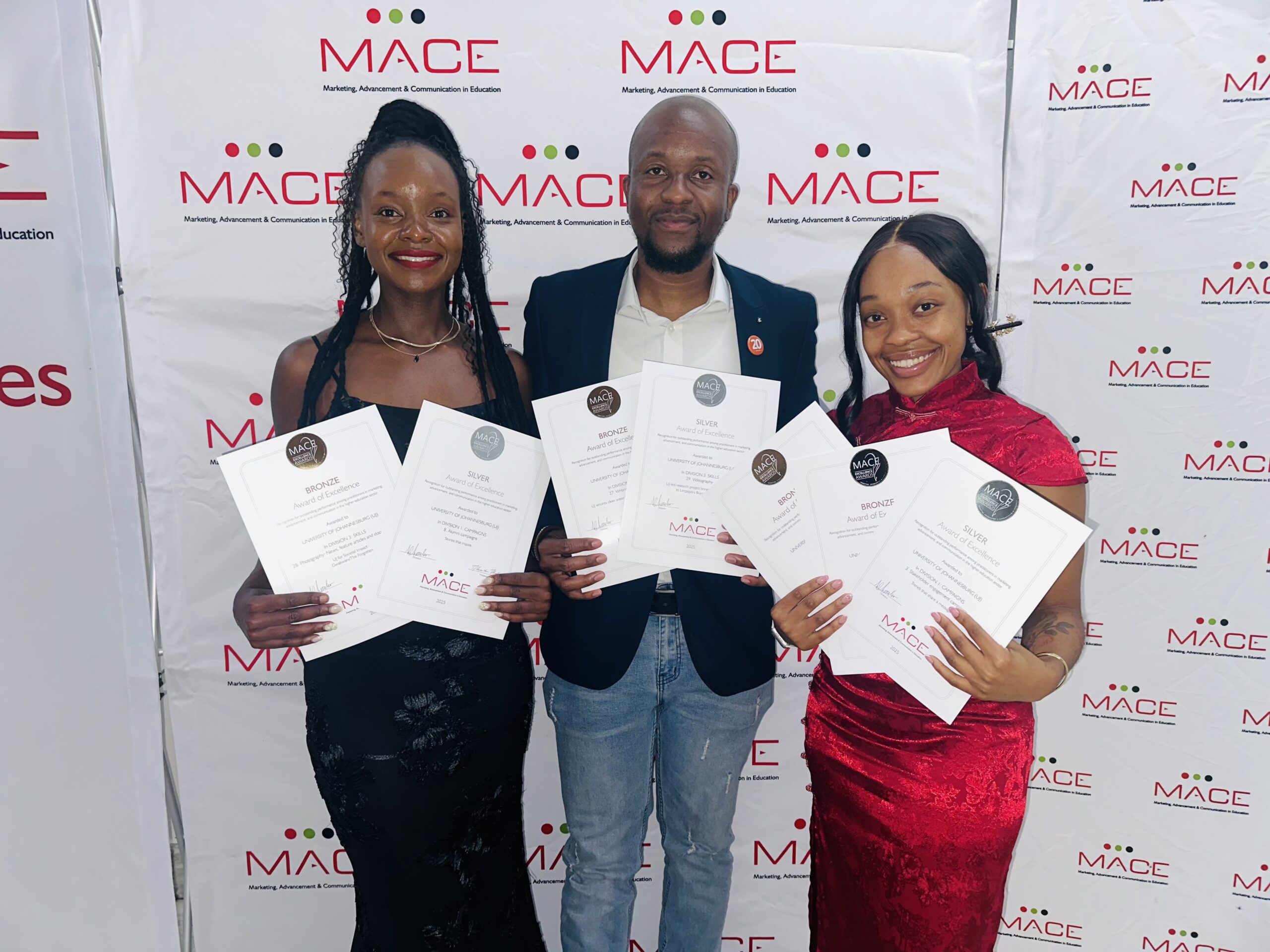Partnership between UJ, Absa and Qhubeka brings relief to learners walking long distances to school
Partnership between UJ, Absa and Qhubeka brings relief to learners walking long distances to school
For many learners of Hanyani Secondary School outside Thohoyandou in Limpopo, the daily walk to school has been a hazardous experience. Apart from braving a long walk of up to five or more kilometres to reach the only secondary school, learners had to wade through an uneven, gravel road laced with stones – and even rocks. Some arrived at school late, missing out on crucial lessons.
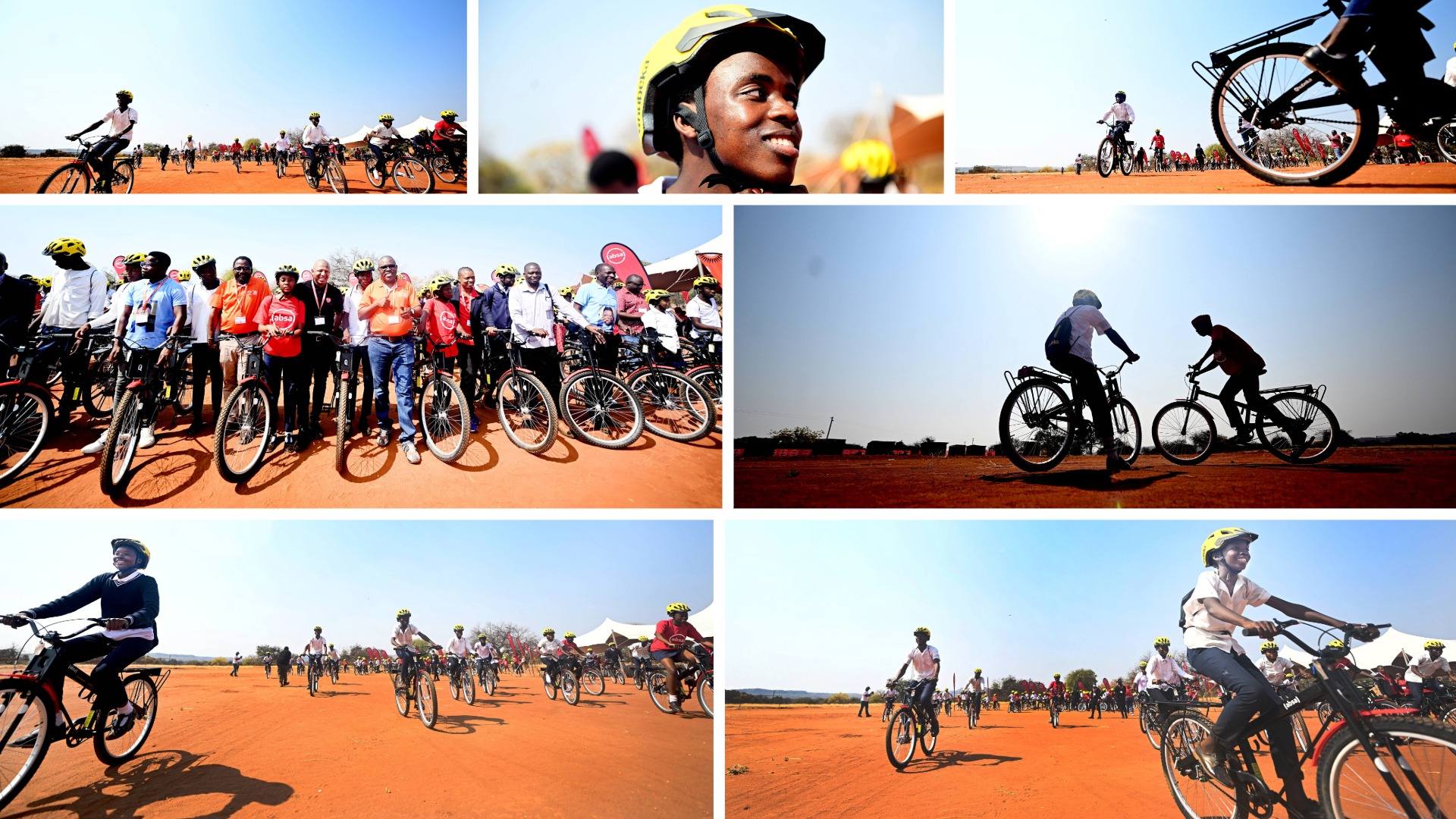
Yesterday (Thursday), it was all smiles at the school as more than 100 learners received brand new bicycles – all thanks to a partnership between the University of Johannesburg (UJ), Absa Business Banking and Qhubeka Charity. The bicycles were distributed to 129 Grade 11 learners as part of the initiative addressing the challenge faced by scholars living in remote areas in getting to school. It is hoped that the project can be extended to learners.
The bicycle initiative arose out of UJ’s transformative Societal Impact project of leveraging technology to address critical infrastructure needs for residents in under-resourced areas. Three villages, Gwakwani, Matatani and Mbodi have substantially benefited from the project, which brings sustainable solutions in energy, water, connectivity, and education. The groundbreaking project, launched in 2014, addresses the UN Sustainable Development Goals (SGDs). The project has also been expanded to Hanyani Secondary School, and it now boasts solar panels and a state-of-the-art learning facility, known as the Tshumisano Learning Centre equipped with computers, books and updated learning materials.
For the Grade 11 learners, the bicycle initiative came as a welcome relief. “The walk is already a workout,” said Mbedzi Rokunda, a 16-year-old learner, speaking moments after receiving his bicycle with a helmet and a mini toolkit. Mbedzi lives in Matahe section of Tshipise and walks for about 40 minutes to get to Hanyani. “By the time I get to school my body is strained. I don’t have much energy left and my mind can’t keep up with the teacher due to losing focus. This causes me to be left behind in many instances.”
His dream is to become a pilot. “With these bikes here, it will definitely make it easier for me to achieve my goals. I appreciate this so much.”
UJ Vice-Chancellor and Principal was among the dignitaries who attended the bicycle distribution ceremony, along with local traditional leaders and government officials. “Through the UJ for Societal Impact, we aim to create inclusive, sustainable solutions that support learners in remote communities. The bicycles are a good incentive for the students to encourage them to pass with good marks,” he said, urging the learners to “go out there and enjoy the bicycles in a responsible manner. “This is going to give you more time to study. We believe in you, we know you are the future.”
Prof Mpedi called on other institutions to emulate UJ’s Societal Impact initiative as it has become a tried and tested method of improving not only learners’ lives but the communities at large.
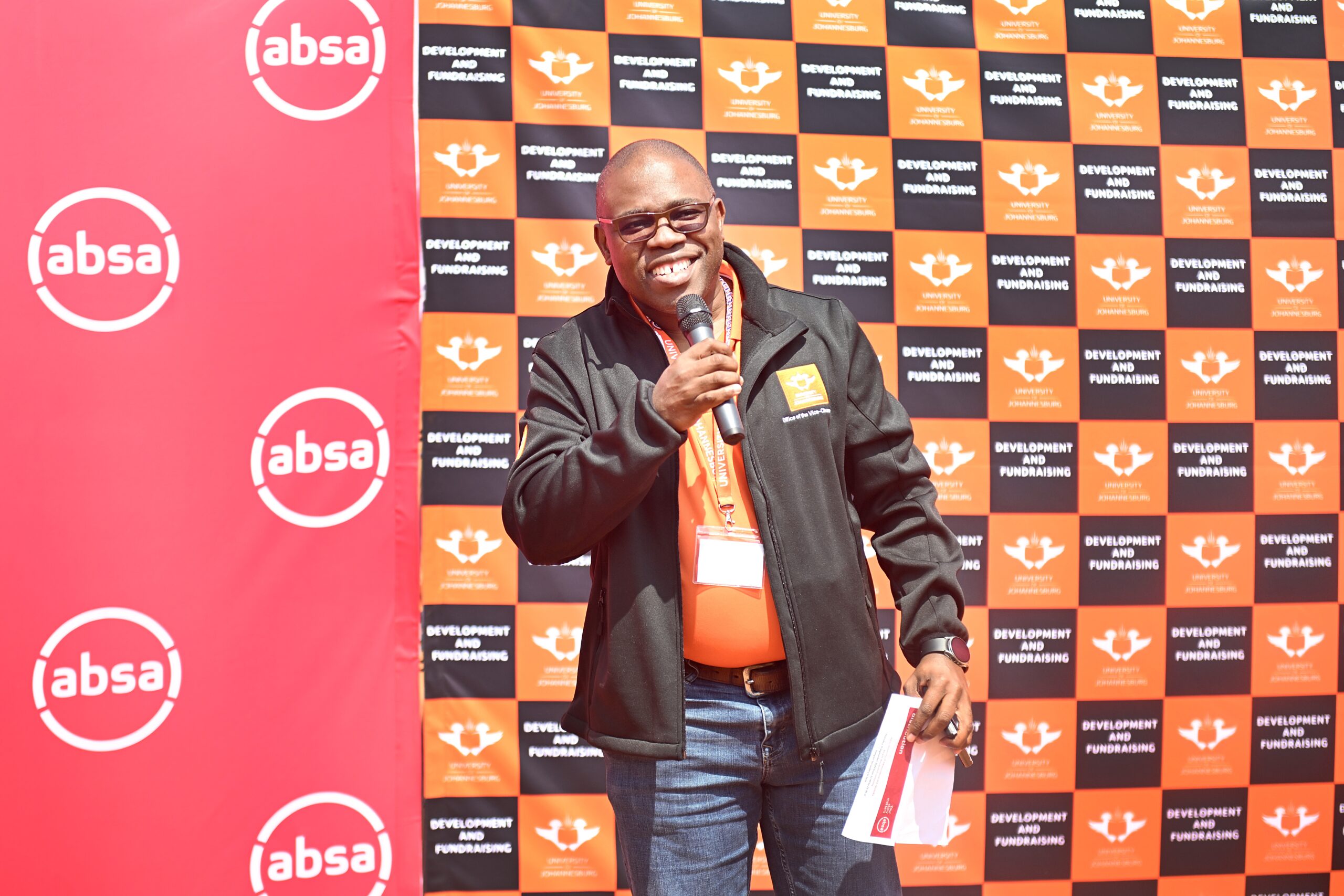
Thifhelimbilu Ndou, the principal of Hanyani Secondary School said the bicycles would “make a huge difference” in the learners’ lives. “We have learners who have to walk over 5km from neighbouring villages because they are not covered by the scholar transport. Often you find them already in slumber at 8am because of the long walk they have to take first thing in the morning to get to school. This will be a relief for those learners.”
Prof Mpedi thanked Absa and Qhubeka for the bicycle initiative. “We want these learners to realise their fullest potential and be the best they can be. Our aim is to see growth and development and inspire other universities to do the same in different parts of the country.
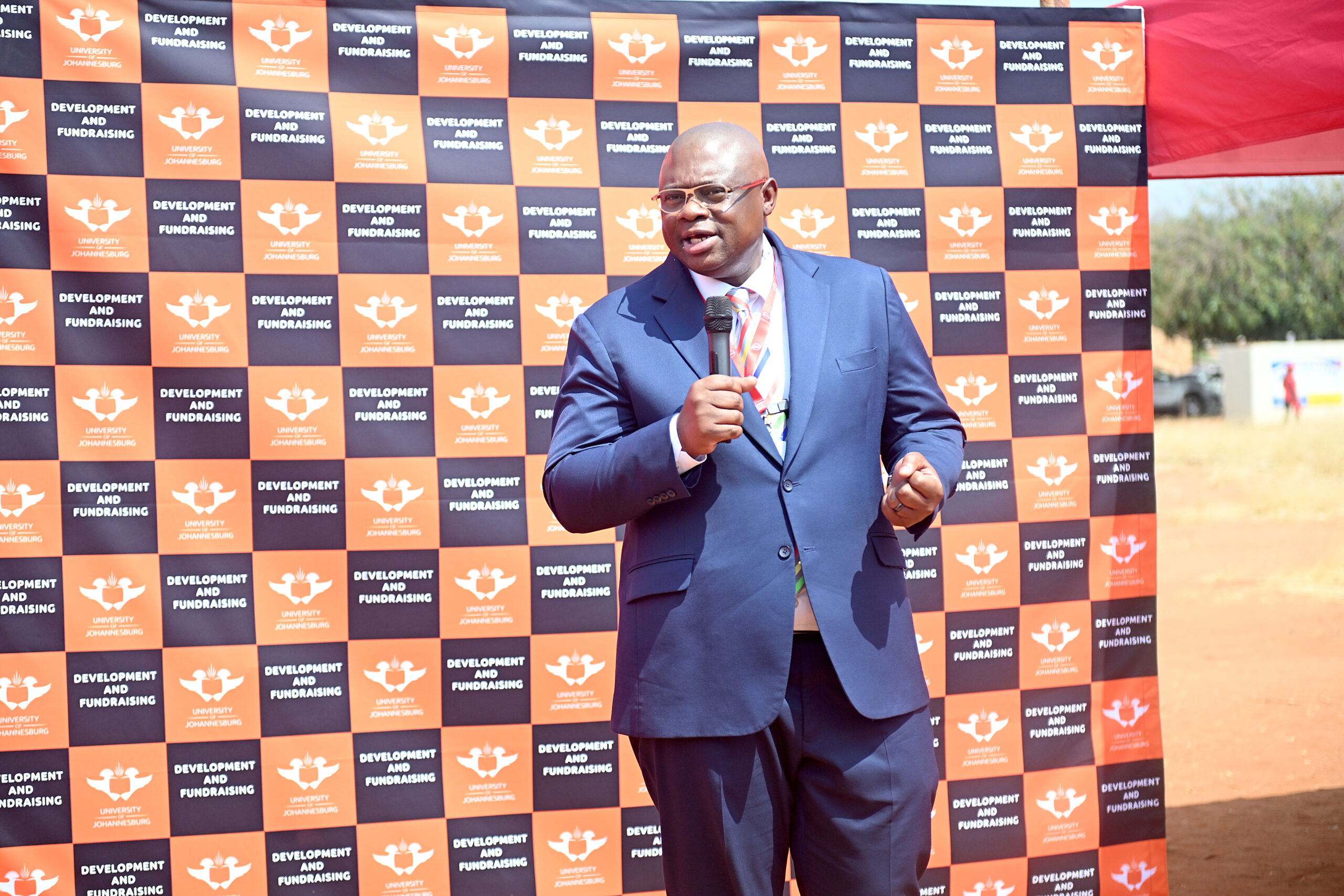
Said Faisal Mkhize, Chief Executive for Absa Business Banking: “Education is a powerful driver of community upliftment and social inclusion, yet many of our young people face challenges simply because of the distance they must travel to school each day. At Absa, we remain committed to contributing meaningfully to sustainable solutions that empower communities and unlock the potential of our youth.”
Another learner, Ndou Rifhatutshedze, also 16, said: “Now, I won’t have to walk a long distance because of this bicycle. I can’t wait to get to school on time. My time and energy will be invested into my studies.”

